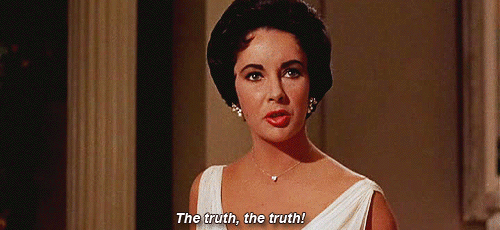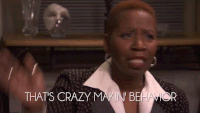Workplace Conflict and Strategies!
(all of my responses are in one video!)
The question I posed to my interviewees was: What is one strategy you employ when you are faced with having a difficult but necessary conversation with someone?

My first response is from my little sister Ellie who is 17 and a senior in high school. She stated that it is very important for her to plan out what she's going to say beforehand. Also, when she's in the conversation, she asks the person why they think this conversation needs to happen, as people often know when they are doing something wrong or a difficult talk is needed. Hearing the other person's perspective first gives them a chance to self-reflect and makes the situation more of an open, two-sided conversation versus a one-sided attack.
My second response is from my friend Caleb, who is 21 and a senior in college. Caleb talked about constructive feedback vs. attacking, by providing people with solutions going forward versus just listing off what they've done wrong. He also talked about knowing what you think and have to say so that you can own your words and be succinct in your statements. Don't be afraid to say it like it is! He believes conflict isn't a bad thing and can lead to better solutions in the workplace.

My third response is from my mama, who is in her early 50's and is the head of the performing arts department at a private school as well as a high-school theatre teacher. One strategy she mentions is asking for the other person's feedback and concerns first instead of launching into her own ideas first. She's also found that in a situation where she is observing one of her team members' classrooms and they did not do well, by asking the teacher how it went first, they tend to come to the conclusion themselves without being told what they did wrong. It then is a constructive conversation versus an attack.
My fourth response is from my roommate Sarah, who is 21 and a senior in college. Her strategy begins with honesty is the best policy. She finds that being direct and truthful is usually the quickest and most effective way to a solution. Being kind and positive as well as working together brings about the best result.

Overall, many of the responses my interviewees gave were pretty similar! I find the strategy of preparation and knowing what you have to say very important because I can often get overwhelmed by emotion and stress when in a difficult conversation (conflict is not my friend yet). By laying out my exact thoughts and positions beforehand, I can help myself feel confident in saying my truth and in not being afraid of arguments. Also, using the strategy of listening to the other person's feedback and concerns first is effective in helping the conversation feel less one-sided. Having an open dialogue is vital to avoid belittling your team members.
One situation where I was faced with a difficult, but necessary conversation was in one of my summer programs when I had a very problematic child and had to have a discussion with both the parent and kid. This student's behavior was not only disruptive, but harmful to the other students. Thus, I concluded it was time for a chat with the parent for safety of the other children.


However, the conversation ended up going well. A strategy I did use was to include the problematic child in the dialogue with the parent. Then, I first asked the kid if he knew of any problems going on in the classroom. That allowed him to, tentatively, admit to some of his issues of bullying and disrespect. This also saved me from the potential of the parent taking the kid's side and not believing my reports of bad behavior. The next strategy I used was to not punish or talk down to the kid, but rather include him in a constructive conversation with his parent about why he behaves so badly and how his behavior affects other people. The conversation ended well as the child didn't feel attacked and the parent wasn't overwhelmed or embarrassed by their kid's behavior.

Comments
Post a Comment